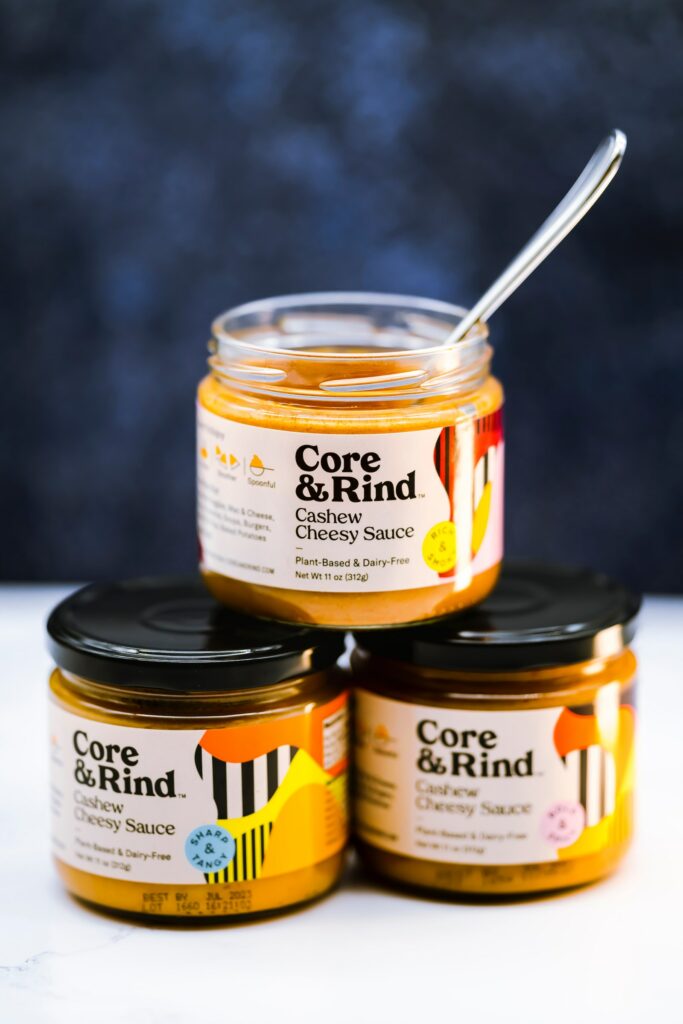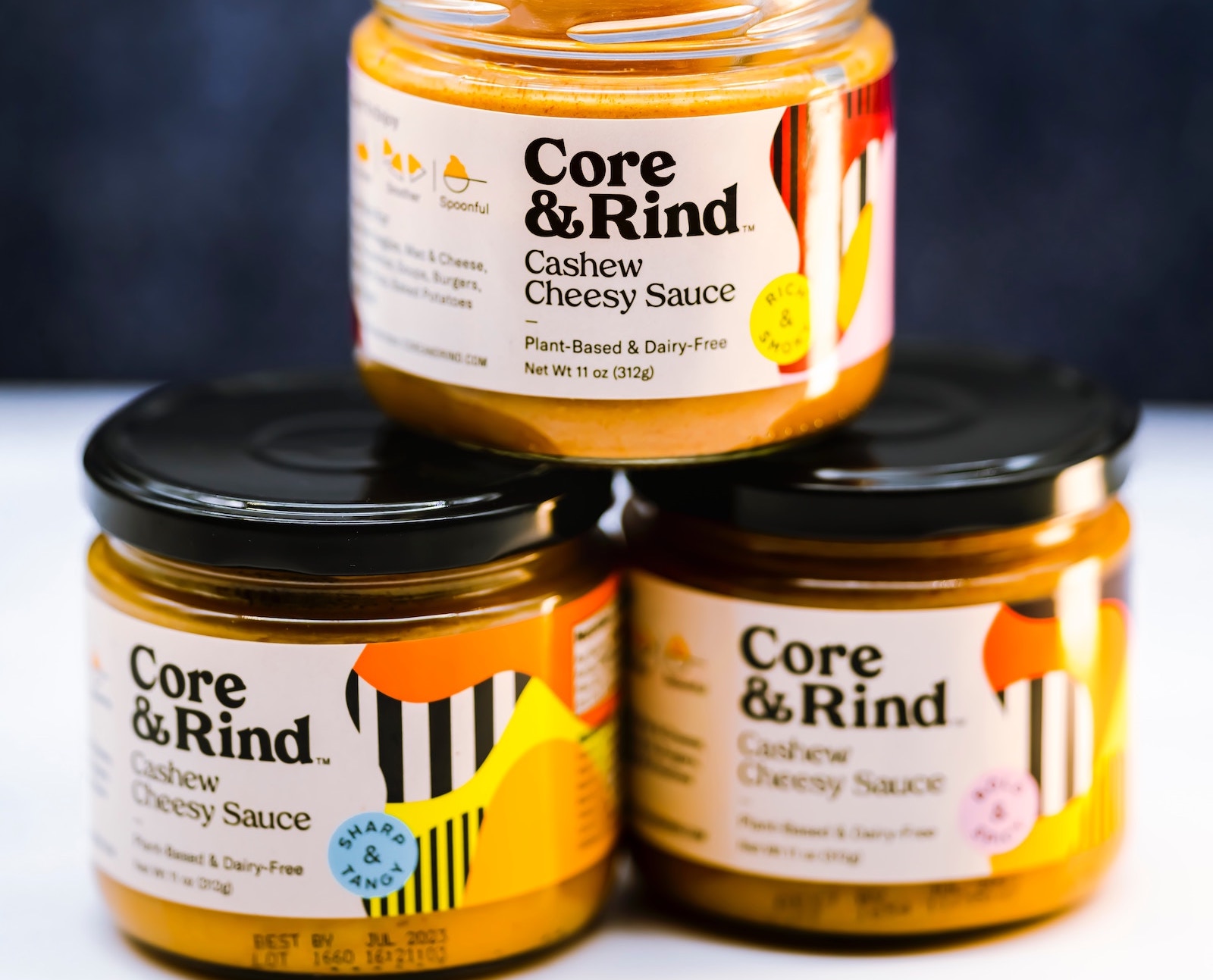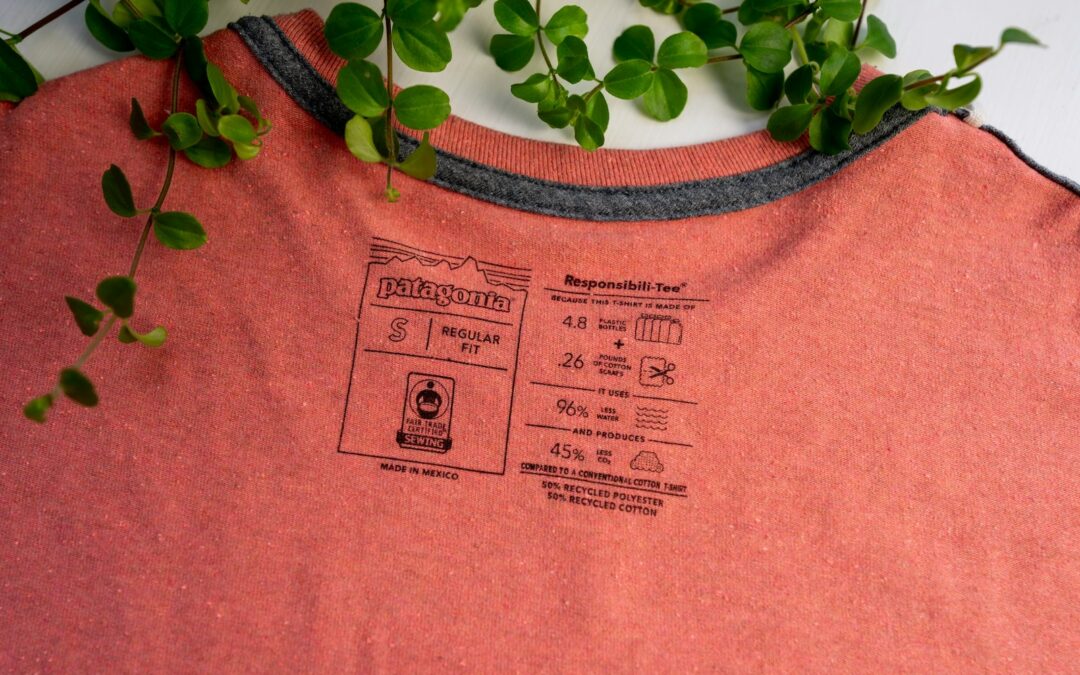
A Guide to Plant-Based Cheese Alternatives
Vegan cheese is a plant-based alternative to traditional dairy cheese that has been gaining popularity in recent years. It is a dairy-free cheese that is made without using any animal-based ingredients whatsoever. Vegan cheese is also known as plant-based cheese, dairy-free cheese, or non-dairy cheese.
There are many types of vegan cheese available, and they are made from a variety of plant-based ingredients such as soy proteins, nuts, or plant-based milks. Nut-based cheese is made from nuts such as cashews, almonds, or macadamia nuts. Plant-based cheese can be made from soy proteins, and it is often used as a substitute for dairy cheese in vegan cooking. Vegan cheese is a popular choice for those who follow a plant-based diet or are lactose intolerant.
Vegan cheese is a great option for people who are looking for a plant-based alternative to traditional dairy cheese. It is a healthy and delicious option that is perfect for those who are following a plant-based diet or are lactose intolerant. With so many different types of vegan cheese available, there is sure to be a flavor and texture that will suit everyone’s taste.
Understanding Vegan Cheese
Vegan cheese is a popular dairy-free alternative to traditional dairy-based cheese. It is a product that mimics some of the properties of cheese, such as its texture, flavor, and melting ability, without using any animal-based ingredients whatsoever.
What is Vegan Cheese?
Vegan cheese is made from plant-based ingredients such as nuts, soy, or coconut oil, which are blended with other ingredients such as starches, thickeners, and flavorings to create a cheese-like product. The plant-based ingredients are used to create a creamy texture, while the starches and thickeners help to bind the ingredients together.
Some of the most popular plant-based ingredients used in vegan cheese include:
- Cashews
- Almonds
- Soybeans
- Coconut oil
- Pea protein
Vegan cheese can come in many different forms, including slices, shreds, blocks, and spreads. It can also come in a variety of flavors, such as cheddar, mozzarella, and parmesan.
How is Vegan Cheese Different from Dairy-Based Cheese?
Vegan cheese is different from dairy-based cheese in several ways. First and foremost, vegan cheese is made without using any milk proteins, such as casein or whey. This makes it a good option for people who are lactose intolerant or allergic to dairy.
In addition, vegan cheese is often lower in fat and calories than dairy-based cheese. This is because it is made from plant-based ingredients, which are generally lower in fat than milk-based ingredients.
Finally, vegan cheese has a different taste and texture than dairy-based cheese. While it can mimic the flavor and texture of cheese to some extent, it is not an exact replica.
Overall, vegan cheese is a good option for people who are looking for a dairy-free alternative to traditional cheese. It is made from plant-based ingredients, is often lower in fat and calories than dairy-based cheese, and can come in a variety of flavors and forms.
Ingredients of Vegan Cheese
Vegan cheese is a plant-based alternative to traditional dairy cheese. The ingredients used to make vegan cheese can vary depending on the recipe and brand. However, there are some primary and additional ingredients that are commonly used to make vegan cheese.
Primary Ingredients
The primary ingredients used to make vegan cheese are plant-based milks, such as soy milk, nut milk, and plant-based cream. These milks are used as a base to create the cheese’s creamy texture.
Nuts are also a common primary ingredient in vegan cheese. Cashews, almonds, and macadamia nuts are often used to create a creamy texture in vegan cheese. Tofu is another primary ingredient that is used to make vegan cheese. It is often used to create a firmer texture in vegan cheese.
Additional Ingredients
In addition to the primary ingredients, there are several additional ingredients that are used to make vegan cheese. Coconut oil is often used as a substitute for dairy butter in vegan cheese recipes. It helps to create a rich and creamy texture.
Grains, such as oats, are used to create a cheesy flavor in vegan cheese. Nutritional yeast is also commonly used to add a cheesy flavor to vegan cheese. It is a deactivated yeast that is high in B vitamins and has a nutty, cheesy flavor.
Seeds, such as sunflower and pumpkin seeds, can also be used to create a crunchy texture in vegan cheese. Other additional ingredients used in vegan cheese include agar, tapioca, and arrowroot. These ingredients are used to create a firmer texture in vegan cheese.
Overall, there are many different ingredients that can be used to make vegan cheese. Whether it’s nuts, plant-based milks, or grains, there are plenty of options available to create a delicious and satisfying plant-based cheese alternative.
Production Process of Vegan Cheese
The Basic Process
The production process of vegan cheese starts with plant-based milk such as soy, almond, or cashew milk. The milk is heated and a bacterial culture is added to separate the solid curds from the liquid whey. This is similar to the process of making traditional cheese using animal milk.
Once the solid curds have formed, they are drained and pressed to remove any excess liquid. The curds are then blended with oils, thickeners, and emulsifiers to create a cheese-like texture. These ingredients help to mimic the taste, texture, and meltability of traditional cheese.
Aging and Fermentation
Some vegan cheeses are aged and fermented to develop a stronger flavor. This process involves adding specific strains of bacteria or fungi to the cheese and allowing it to mature over time. Just like traditional cheese, the aging process can take anywhere from a few days to several months.
During the aging process, the bacteria or fungi release enzymes that break down the proteins and fats in the cheese, resulting in a more complex flavor. The texture of the cheese can also change, becoming firmer or more crumbly as it ages.
Overall, the production process of vegan cheese involves coagulating plant-based milk, blending it with oils, thickeners, and emulsifiers, and aging or fermenting it to develop flavor. The use of bacterial culture, fermentation, and aging is common in both traditional and vegan cheese production.
Types of Vegan Cheese
Vegan cheese can be classified based on a variety of factors such as texture and flavor. Here are some of the most common types of vegan cheese:
Based on Texture
Vegan cheese comes in a variety of textures, from soft and spreadable to hard and crumbly. Some popular textures include:
- Cream cheese: This type of vegan cheese is soft and spreadable, making it perfect for bagels, crackers, and sandwiches.
- Slices: Vegan cheese slices are perfect for making grilled cheese sandwiches or topping burgers.
- Shreds: Shredded vegan cheese can be used in a variety of dishes, such as pizza, quesadillas, and salads.
- Blocks: Hard vegan cheese blocks can be sliced, grated, or crumbled and used in a variety of dishes.
Based on Flavor
Vegan cheese can also be classified based on flavor. Some popular flavors include:
- Cheddar: Vegan cheddar cheese is a popular choice for making mac and cheese, grilled cheese sandwiches, and nachos.
- Mozzarella: Vegan mozzarella cheese is a great choice for making pizza and lasagna.
- Parmesan: Vegan parmesan cheese can be grated over pasta dishes, salads, and soups.
- Provolone: Vegan provolone cheese is a great choice for making sandwiches and paninis.
Overall, there are many different types of vegan cheese available on the market today, each with its own unique texture and flavor. Whether you are looking for a soft spreadable cheese or a hard and crumbly cheese, there is sure to be a vegan cheese that meets your needs.
Cooking with Vegan Cheese
Cooking with vegan cheese can be a bit tricky, but with the right techniques, it can be just as delicious as dairy cheese. Here are some tips to help you get the most out of your vegan cheese.
Vegan Cheese in Baking
When baking with vegan cheese, it’s important to use finely shredded cheese. While vegan cheese shreds may not look like they’ve melted, they actually have plenty of stretch and ooze when cut. Finer shreds melt better and look almost indistinguishable from dairy cheese. Additionally, adding a bit of starch to the cheese can help it melt better and create a creamier texture.
Vegan cheese can be used in a variety of baked dishes, including pizza, lasagna, and casseroles. When making pizza, it’s best to add the cheese towards the end of the baking time to prevent it from burning. For lasagna and casseroles, it’s best to cover the dish with foil for the first half of the baking time to prevent the cheese from drying out.
Vegan Cheese in Grilling
When grilling with vegan cheese, it’s important to use a high-quality cheese that can withstand the heat. Some vegan cheeses may melt too quickly or become too runny when exposed to high temperatures. Additionally, it’s important to oil the grill grates before cooking to prevent the cheese from sticking.
Vegan cheese can be used in a variety of grilled dishes, including grilled cheese sandwiches, burgers, and quesadillas. When making grilled cheese sandwiches, it’s best to use a vegan butter or margarine to help the bread brown and become crispy. For burgers and quesadillas, it’s best to add the cheese towards the end of the cooking time to prevent it from burning.
Overall, cooking with vegan cheese requires a bit of experimentation and practice, but with the right techniques, it can be just as delicious as dairy cheese.
Popular Vegan Cheese Brands
When it comes to vegan cheese, there are a variety of brands available on the market. Here are some of the most popular vegan cheese brands that you might want to try:
Violife
Violife is a Greek brand of vegan cheese that is known for its wide variety of flavors and textures. Violife cheese is made from a blend of coconut oil and starches, and is free from dairy, soy, gluten, and nuts. Some of the most popular Violife flavors include cheddar, mozzarella, and feta.
Daiya
Daiya is a Canadian brand that produces a wide range of vegan cheese products, including shredded cheese, sliced cheese, and cream cheese. Daiya cheese is made from a blend of tapioca starch, coconut oil, and pea protein, and is free from dairy, soy, and gluten. Some of the most popular Daiya products include their cheddar-style shreds and their cream cheese-style spreads.
Kite Hill
Kite Hill is an American brand that specializes in artisanal vegan cheese made from almond milk. Kite Hill cheese is known for its creamy texture and rich flavor, and is free from dairy, soy, and gluten. Some of the most popular Kite Hill flavors include ricotta, cream cheese, and soft cheese.
Treeline
Treeline is an American brand that produces a range of artisanal vegan cheese made from cashews. Treeline cheese is known for its tangy flavor and creamy texture, and is free from dairy, soy, and gluten. Some of the most popular Treeline flavors include herb-garlic, chipotle-serrano pepper, and scallion.
Field Roast
Field Roast is an American brand that produces a range of vegan cheese made from coconut oil and fermented tofu. Field Roast cheese is known for its rich flavor and meltable texture, and is free from dairy, soy, and gluten. Some of the most popular Field Roast flavors include chao slices, chao shreds, and chao cream cheese.
The vegan cheese market is constantly growing, and there are many other brands available that offer a variety of flavors and textures. Whether you’re a long-time vegan or just starting to explore plant-based options, there’s sure to be a vegan cheese brand that suits your tastes and dietary needs.
Flavoring and Seasoning of Vegan Cheese
Flavoring and seasoning are essential components of vegan cheese. They not only add taste but also help to balance the flavors and create a creamy mouthfeel. One of the most popular flavorings for vegan cheese is nutritional yeast. It has a nutty, cheesy flavor that makes it an excellent substitute for parmesan cheese. Nutritional yeast is also rich in vitamins and minerals, making it a healthy addition to vegan cheese.
Another popular ingredient for vegan cheese is lemon juice. It adds a tangy, tart flavor that complements the nutty flavor of nutritional yeast. Garlic and onion are also commonly used to add depth and complexity to vegan cheese. They provide a savory, umami flavor that enhances the overall taste of the cheese.
Herbs are another important component of vegan cheese seasoning. Basil, oregano, thyme, and rosemary are popular choices that add a fresh, herbaceous flavor to the cheese. Seasonings such as salt and pepper are also essential to balance the flavors and create a well-rounded taste.
In addition to taste, seasoning can also affect the texture of vegan cheese. For example, adding agar-agar or tapioca starch can create a firmer, more cheese-like texture. Adding coconut oil or cashew cream can create a creamier mouthfeel.
Overall, flavoring and seasoning are crucial components of vegan cheese. They not only add taste but also help to balance the flavors and create a creamy mouthfeel. Nutritional yeast, lemon juice, garlic, onion, herbs, and seasonings such as salt and pepper are all popular choices for seasoning vegan cheese.
Additives in Vegan Cheese
Vegan cheese is made from a variety of ingredients, including plant-based milk, thickeners, emulsifiers, and oils. To achieve a cheese-like texture and flavor, vegan cheese often contains additives such as tapioca, agar, arrowroot, and various starches. These additives help to create a firmer texture and a more cheese-like flavor.
One common additive in vegan cheese is carrageenan, a seaweed-derived thickener that is often used in place of gelatin. Carrageenan helps to create a smooth, creamy texture in vegan cheese and other dairy-free products.
Another common additive is xanthan gum, a thickener and stabilizer that is often used in place of eggs and dairy in vegan cooking. Xanthan gum helps to create a smooth, cohesive texture in vegan cheese and other dairy-free products.
In addition to thickeners and stabilizers, vegan cheese may also contain coconut oil, vegetable oils, and other fats to help create a rich, creamy texture. These oils can also add flavor to the cheese, depending on the type of oil used.
Overall, while vegan cheese may contain a variety of additives, many of these are used to create a texture and flavor that is similar to traditional dairy cheese. However, it’s important to note that not all vegan cheeses are created equal, and some may contain more additives than others. As with any food, it’s important to read the label and choose products that are made with high-quality ingredients.
Challenges and Controversies
As the popularity of vegan cheese continues to grow, so do the challenges and controversies surrounding it. One major issue is the use of terms like “cheese” and “dairy” to describe plant-based alternatives. Some traditional dairy cheese makers argue that these terms are misleading and confusing for consumers.
Another controversy surrounding vegan cheese is the use of palm oil, which is a common ingredient in many nut-based cheeses. Palm oil production has been linked to deforestation, habitat destruction, and human rights abuses in some parts of the world.
In addition, there are concerns about the nutritional value of vegan cheese compared to traditional dairy cheese. While some nut-based cheeses can be high in protein and healthy fats, others may be high in salt and additives.
Finally, there is the issue of taste and texture. While many consumers enjoy the flavor of vegan cheese, others find it lacking compared to traditional dairy cheese. This can be a challenge for chefs and food manufacturers looking to create plant-based dishes that are as satisfying as their dairy-based counterparts.
Overall, while vegan cheese offers a promising alternative to dairy cheese for those who are lactose intolerant, vegan, or simply looking to reduce their animal product consumption, it is not without its challenges and controversies. As the industry continues to grow and evolve, it will be important to address these issues and work towards creating more sustainable, healthy, and delicious plant-based cheese options.
The Future of Vegan Cheese
As the demand for plant-based foods continues to rise, the future of vegan cheese looks promising. According to a report by Grand View Research, the global vegan cheese market is expected to reach USD 3.90 billion by 2028, growing at a CAGR of 14.8% from 2021 to 2028.
One of the main factors driving the growth of the vegan cheese market is the increasing number of lactose intolerant and health-conscious consumers. Vegan cheese is a healthier and more sustainable alternative to dairy cheese. It is free from cholesterol, lactose, and casein, making it a popular choice among consumers who are looking for healthier options.
Another factor contributing to the growth of the vegan cheese market is the increasing availability of vegan cheese products in supermarkets and online stores. Major food companies such as Daiya Foods, Follow Your Heart, and Violife have introduced a wide range of vegan cheese products, including vegan cream cheese, vegan cheddar cheese, and vegan mozzarella cheese.
In addition, advancements in food technology have enabled manufacturers to produce vegan cheese that has a similar taste and texture to dairy cheese. For example, some vegan cheese products are made using cultured nut milk, which gives them a tangy flavor and a creamy texture similar to dairy cheese.
Overall, the future of vegan cheese looks bright as more consumers are becoming aware of the health and environmental benefits of plant-based foods. With the increasing availability of vegan cheese products and advancements in food technology, the vegan cheese market is expected to continue to grow in the coming years.







